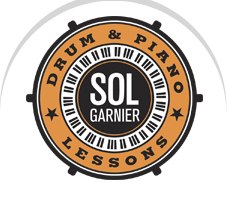Your cart is currently empty!
The tectonic plate
I was talking with a student about speed. Here is someone who began playing the piano six months ago and was getting frustrated at the slow pace of his speed. I am not talking about the slow pace of his development, that’s another matter. I am talking about just the speed of his scales on the keyboard. He pushed and pushed and pushed, he did his hour on the bench diligently every day, and yet he had the feeling his speed was stuck on slow.
And, up to a certain point, he’s absolutely right. Compared to just a month ago, the needle had barely moved. It had moved, yes, but only a little. Oh frustration! Oh anger!
So, he asked me casually (we were outside having a chat on a beautiful fall morning after his lesson), he asked me, I said, what I thought about it.
So, here goes. I’m sharing the answer with you.
I told him that compared to when he started, at least now he knew what a C scale was and could execute one (and not murder it!) with a reasonable amount of confidence. He also got rid of the flat fingers and the low wrists he cherished at the beginning. Furthermore, his sound had blossomed into a pleasant one instead of the mashed up tone familiar to so many new piano players. His stamina had improved, too. At first his fingers would stiffen and it would be hard to produce a song after just 10 minutes of playing, a feat he could now master easily. I could keep going with his list of progress, and I did a little for him as the first Autumn wind blew gently on our faces, but I think you get the gist.
Sometimes we do not concentrate on the right stuff to measure our progress. Speed is important, yes, I do agree, but it is not the only gauge for me to assess a student’s path. The way they approach the instrument is much more important. There is also the sound, the confidence, the tempo, the dynamics, the conviction, the nimbleness, the versatility, the overall knowledge of the piano that counts. As they take lessons, they learn all of that. This is not small potatoes. This is the very material that will help them project their feelings to an audience, the reason why “Jingle Bells” (Christmas Season is coming) shouldn’t be played like the Moonlight Sonata.
So, as I was trying to reassure his heart that he was not in a dismal place, I was thinking about the way we learn our skills, all too often unhappy and frustrated, whipping the horse that is our mind to get more results than the poor thing can cough up. Our learning experience moves at the speed of a continent, tectonic plates crawling so slowly that it requires an outside ear to tell you that you have moved at all. Usually that’s what a teacher does: emphasize the progress by reminding you where you were. Sometimes, it is only by comparison that we can know that we are on the right track. And sometimes I think my job is to tell people to not find reasons to hate themselves.

